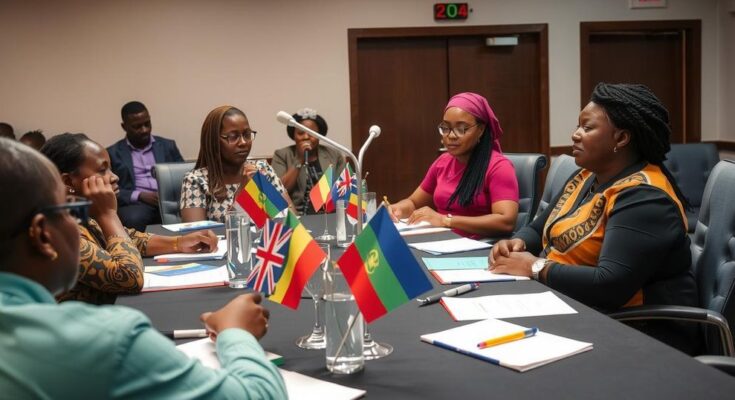Botswana faces a significant challenge with women’s representation in parliament, where only 28 women contested in the last election, leading to just three wins, reflecting a decline in representation. With 54% of the electorate being women, political parties must reform their candidate selection processes to ensure inclusivity, as highlighted by the Southern African Development Community’s gender equality initiatives.
Botswana’s political landscape has long grappled with the pressing question of women’s representation, encapsulated in the phrase “bomme ba kae?” (where are the women?). This query acquires added urgency in the context of the upcoming 2024 general elections, particularly given the disheartening statistics from the past elections, where only 28 women contested for parliamentary seats out of 258 candidates. This represents a mere 10.85%, with just three women securing positions, resulting in a meager representation of 4.92% in parliament. This figure is a decline from the previous 5.26% recorded in the 2019 elections.
Women constitute 54% of the eligible electorate in Botswana, yet they remain conspicuously absent from decision-making roles where impactful policies are formulated. To foster inclusive democratic practices, it is paramount for Botswana’s political parties to confront the significant under-representation of women within their frameworks and during candidate selection processes. Such an initiative is essential for positioning these parties as institutions that genuinely represent societal interests.
Historically, in 2002, the Southern African Development Community (SADC) introduced a gender checklist aimed at embedding gender equality throughout the electoral process. Several nations have since amended their constitutions to facilitate the participation of women or to promote gender parity within political structures.
Botswana has experienced an ongoing struggle with women’s political representation, highlighted by the stark contrast between the proportion of eligible female voters and their presence in parliament. The upcoming 2024 elections underscore the critical need for transformative measures within political parties to engage women not only as voters but as active participants in governance. The initiative by the Southern African Development Community serves as a pertinent backdrop, intending to promote gender equality in elections across the region, yet the challenges persist within Botswana’s political framework.
In conclusion, the under-representation of women in Botswana’s parliament signals a need for immediate reform within political parties, emphasizing their responsibility to cultivate inclusivity and gender equality. As the 2024 elections approach, addressing these disparities is not only a matter of equitable representation but also crucial for the development of a truly representative democracy in Botswana.
Original Source: constitutionnet.org




